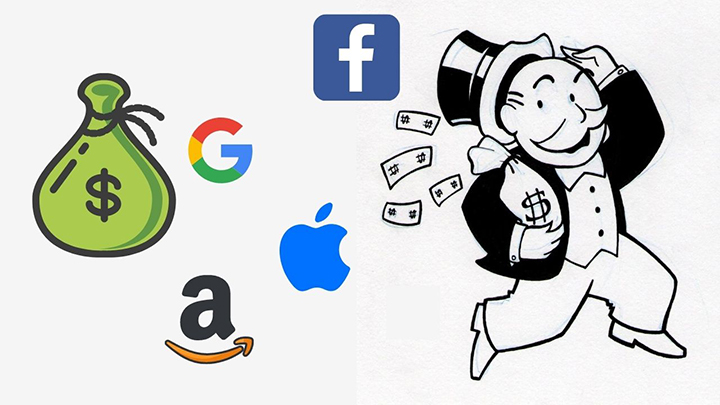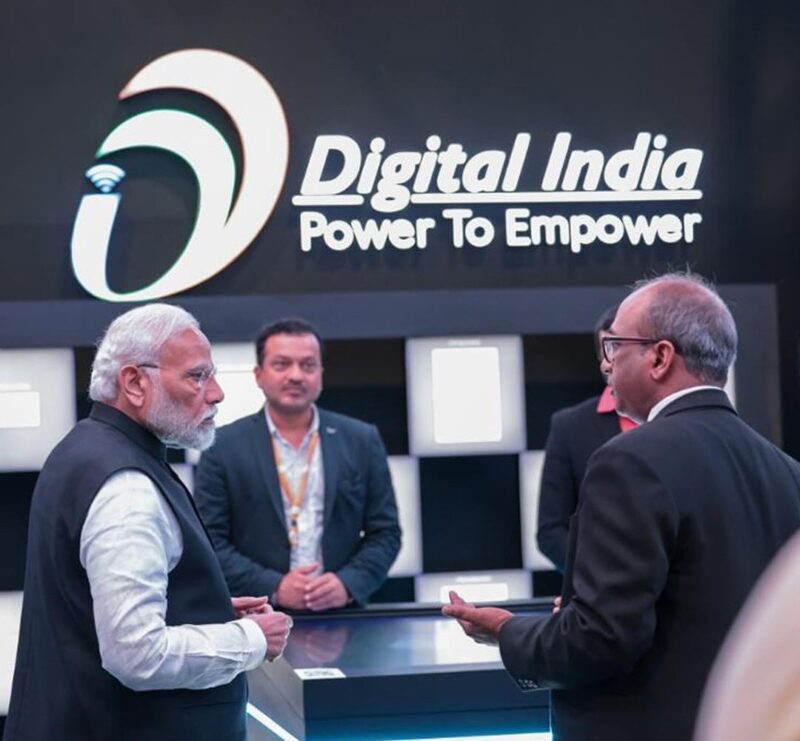As the battle between Apple and Fortnite intensifies, there is a deeper question that needs to be answered — should tech giants be allowed to establish their dominance to such an extent that they can monopolise the market?
August 2020 saw growing tensions between Apple and Epic Games till it got to a point where the mobile phone manufacturer effectively removed the battle royale game Fortnite from its mobile phone app store.
Apple made the move after Epic games introduced a feature in Fortnite with their update that allowed users to bypass Apple’s own payment system and instead make in-app purchases directly from Epic Games. While the move is a clear violation of Apple’s app store guidelines for developers, Epic Games on its part blames the 30% standard fee to be paid by developers to use the Apple app store.
This isn’t the first time that the notorious 30% Apple tax, as it is popularly known, has come into the limelight. In 2019 Spotify, the popular music streaming app, had filed an anti-trust complaint against Apple, accusing the company of using the 30% fee it charges developers as a method of stifling innovation and giving its own services an advantage over others. The complaint also stated that Apple was using technical and experience-limiting restrictions to make Spotify inferior to its own music streaming service, Apple music.
The functioning of Apple store and the company’s insistence on the 30% cut is especially worrisome as the same service that other developers pay Apple tax on, can be provided by Apple at cheaper prices as their own apps do not have pay this fee.
This incident is just a part of a larger underlying problem in the tech world: the creation of monopolies.
To understand how this happens, despite laws in place to check the creation of monopolies in the market, one needs to just look at the sheer scale at which these companies operate. In the case of Apple, it can be argued that because the company is not monopolising the market in the context of overall smartphone apps, it is not a monopoly. However, if the context is changed to just apps for iPhones, then the company definitely has monopolistic control over how the market functions.
And Apple is not the only company that insists that all payments go through it, ensuring that they get a cut of the payment or have monopolistic designs in their functioning. Around the same time Apple was removing Fortnite from its app store, Google was doing the same. The reason was also the same. Google’s Android is an open-source platform, so the game can be downloaded from places other than the Google play store. But the method of controlling the app store is the same.
Since it was established in 1998, Google and its parent company Alphabet have acquired more than 200 startups. These include core products offered by the company like YouTube, Android and DoubleClick. This becomes problematic when one looks at the lopsidedness of the market share for search engines that Google enjoys, around 86.02% as of April 2020. What this essentially does, is to allow an unfair advantage to Google over smaller startups and other tech companies that offer similar services as the ones offered by Alphabet while at the same time ensuring that the tech giant has the means to acquire more and more related products, thus, establishing its dominance.
When talking about unfair advantage, one cannot ignore Amazon. Jeff Bezos’s behemoth is nowadays competing against almost every other tech giant in the industry. And nothing can better illustrate the company’s aggressive policy of side lining competition than the case of Diapers.com.
While competing with Daipers.com, Amazon dropped diaper prices by as much as 30%, matching Diapers.com’s price move for move. This continued till Diapers.com agreed to be acquired by Amazon. What this example perfectly reflects is the advantage Amazon as a manufacturer has over its competitors because it owns the market place.
Another area where Amazon has a huge advantage over its rivals is Amazon basics — where the wealth of data stemming from purchasing history and users’ browsing history in the app helps it better customise and sell products to consumers.
Lastly, when talking about tech giants, one cannot ignore the elephant in the room — Facebook. The company owns WhatsApp and Instagram and collects so much user data that it is in itself a powerhouse. Add to this the opaqueness with which the company functions and its often-critiqued approach towards self-regulation and moderation of content, and the problems become worrisome if not acute.
Facebook’s grasp on the social networking model of marketing is so strong that it virtually has no direct competitor. If one takes into account all the apps and sites like Facebook Messenger and WhatsApp, the company’s userbase is immense. And this immense user base with all the user data makes Facebook one of the biggest targeted advertisement portals in the world, right after Google. And as is the case with Google, it has complete control over pricing, content moderation, targeted audience and no direct viable competitor. All of which essentially makes it monopolistic entity which can be used to sway users any which way.
In 2018 Facebook was entangled in the Cambridge Analytica scandal, where user data was used to construct psychological profiles which were then to be sold to election campaigns in the United States of America. Recently the company has been accused of failing to remove hate speech posted by members of the ruling Hindu nationalist Bharatiya Janata Party over the fear of damaging business in India.
Most of these tech giants fit the bill of a monopoly– they are huge, they cater to a worldwide customer base, and they have no sizeable competition in some way or the other. Let’s take the example of Apple, for instance. Worldwide, Apple has a market share of just 13.3% but because Apple holds the right to remove and enforce its own policies in its smartphones and app store, like in the case of Fortnite, the company has a monopoly in a large number of IOS users.
Similarly, Facebook with its standalone user base of 2.45 billion, has immense control over the dissemination of information which can be used arbitrarily while the company stifles growth of smaller platforms.
So great can be the threat from the creation of these monopolies that in 2019, US senator Elizabeth Warren proposed a plan to halt acquisitions, disallowing companies like Amazon from operating the market place while being a manufacturer themselves and also rolling back acquisitions by tech giants to ensure a level playing field for smaller startups.
However, no such steps have been proposed by the Indian government and with the unfolding of the recent controversy surrounding Facebook’s content moderation policies it might not be such a bad idea to ensure reforms and give the budding Indian IT sector a level playing field against these titans of the tech world. While all these companies offer services and products that we depend on, one cannot miss the elephant in the room — their business practices are effectively allowing them to establish monopolies in their market spaces. And as our dependence on technology increases in the age of social distancing, their zones of influence are sure to increase.
(Cover: Tensions between Apple and Epic Games, developer of Fortnite, is the just the tip of a larger underlying problem in the tech world—the creation of monopolies)





